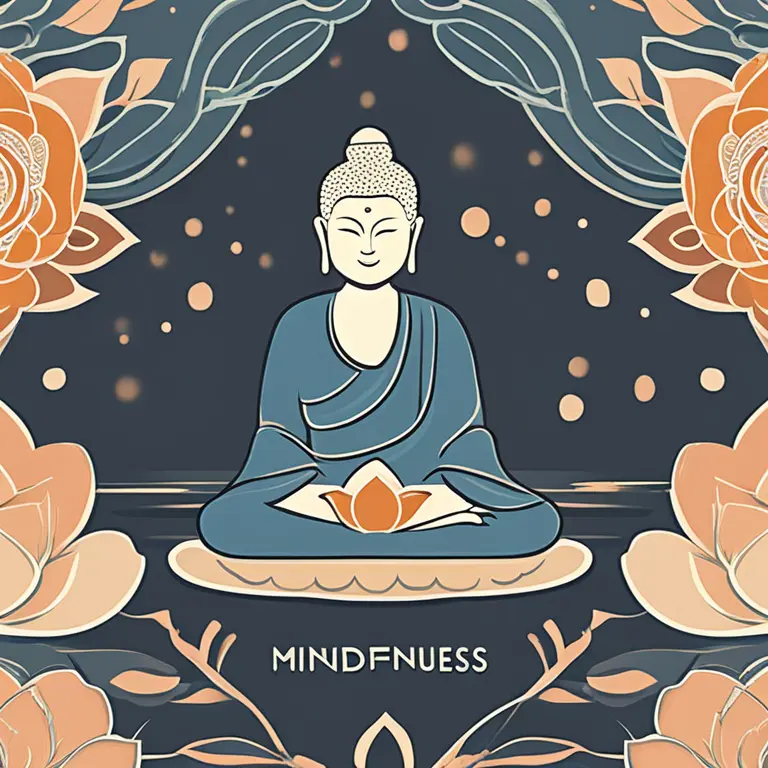
Varieties of Meditation Techniques for Inner Harmony
Explore different meditation techniques to enhance your inner peace and spiritual growth in this comprehensive guide.
article by Hina Kurosawa
The Essence of Meditation
Meditation has emerged as a cornerstone practice for those seeking tranquility and self-awareness. While the origins of meditation can be traced back to ancient traditions, its relevance remains evergreen in our modern society, where the quest for peace amidst chaos remains a universal pursuit. In essence, meditation involves focusing the mind and silencing the incessant chatter that often plagues our everyday consciousness. Through this practice, individuals can reach deeper levels of relaxation and insight, fostering mental clarity and emotional balance. This article delves into the array of techniques that can be adopted to achieve these states of inner harmony.

Concentration Meditation
Within the wide spectrum of meditation practices, concentration meditation stands as a fundamental technique. This form of meditation is characterized by the singular focus on a specific object, thought, or activity. By directing attention to a chosen point of reference, be it the rhythm of one’s breath, the flickering flame of a candle, or the recitation of a mantra, practitioners can cultivate a heightened state of mental alertness and discipline. As distractions are acknowledged and redirected back to the meditative focus, this practice paves the way for increased clarity and a greater sense of presence.

Mindfulness Meditation
Mindfulness meditation, rooted in Buddhist teachings, has gained immense popularity for its applicability in various aspects of life. The practice entails remaining keenly aware of the present moment, observing thoughts, feelings, and sensory experiences without judgment. By fostering an attitude of acceptance and detachment from the internal narrative, mindfulness practitioners develop an enhanced capacity to respond to situations with equanimity. The integration of mindfulness into daily routines has proven beneficial for mental health and overall well-being, making it a versatile and appealing approach for individuals from all walks of life.

Transcendental Meditation
Transcendental Meditation, or TM, is a technique that has been widely researched and documented for its health benefits. This practice involves sitting comfortably and silently repeating a personalized mantra. It’s distinct in its effortless approach to transcending thought and entering a state of pure consciousness, often described as ‘transcendental awareness’. TM is claimed to reduce stress and anxiety, improve cognitive functioning, and promote self-actualization. With a structured progression and certified instructors, TM holds a unique position among meditation practices, tailored to those seeking structured guidance on their path to tranquility.

Movement-Based Meditation
Not all meditation requires stillness. Movement-based meditation, exemplified by practices such as Tai Chi, Qi Gong, and walking meditation, integrates physical activity with meditative focus. These practices concentrate on the flow of energy through the body and the synchronization of movement with breath. For many, the act of gentle, deliberate motion facilitates a meditative state, making it an appealing option for those who find peace in action. It is also an excellent choice for improving physical health and vitality along with mental clarity.
Loving-Kindness Meditation
Loving-kindness meditation, known in Pali as 'Metta Bhavana', is designed to cultivate feelings of compassion and love toward oneself and others. Through visualization, mantras, and focusing the heart on positive emotions, practitioners nurture a spirit of forgiveness and connection. Research suggests that this form of meditation can reduce negative emotions and increase positive ones, contributing to more harmonious relationships. Metta can be an empowering practice, especially for those seeking to heal emotional wounds and foster a more empathetic world view.
Guided Visualization
Guided visualization, or guided imagery, offers a more structured meditation experience. In these sessions, practitioners visualize vivid and positive scenarios, often led by a narrator. This form of meditation is effective for relaxation, stress reduction, and manifesting personal goals or healing. The detailed nature of the imagery involved allows individuals to fully immerse themselves in the experience, potentially unlocking deep-seated creativity and problem-solving abilities. As technology advances, tools such as virtual reality may further enhance the guided visualization landscape, offering more immersive and customizable experiences.
Published: 1/18/2024
Modified: 1/18/2024
More predictions
Come back here soon to learn more about yourself and your future


The Science View: Meditation & Brain Health
Delve into the science of how regular meditation practices can influence and improve brain function and overall mental health.


The Meaning of Meditation
A concise foray into the meaning and practice of meditation in contemporary wellness cultures.


The World of Meditation: A Peaceful Journey
Delve into the serene world of meditation with this comprehensive guide that illuminates its purpose, practice, and profound benefits.